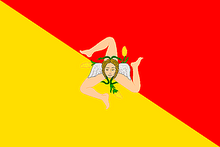PROLEGOMENA: Redeemer Presbyterian Church
Sunday, July 29, 2007
For the past week I’ve been re-reading the memoir of Dalton Conley, the Chair of the sociology department at New York University (my alma mater). And in his memoir, Conley recounts the story of being a young white kid growing up on the Lower East Side in 1970s among the ethnic color in that neighborhood. And the gist of his memoir is, how he came to an understanding of race, class and (even) gender distinctions at a very early age. And at about one-third through his story he says this: “Race was not like something mutable, like a freckle or a hairstyle; it defined who looked like whom; who was allowed to be in the group--and who wasn’t.”
Now, Professor Conley’s realization is probably historically accurate for almost every group that has ever existed. That is, every group except for this group--the church.
Listen to Paul’s words from Galatians 3, “There is neither Jew nor Greek; there is neither freeman nor slave; there is neither male and female; for you are all one in Christ Jesus.”
You see, the God we come to worship this morning; the God we come to sing praises to, has made a way for all people everywhere to be in this group, the church, through the death and resurrection of Jesus Christ.
So, are you ready to worship this God this morning, the one who can be worshiped by everyone? Welcome to worship!
Monday, July 30, 2007
Thursday, July 19, 2007
The Book the PCA Study Committee Needed to Read:
The Saving Righteousness of God by Michael Bird
Michael Bird has done a wonderful and fair job sifting through the data on the New Perspective on Paul. Moreover (and for some strange reason) he has an interest in the debates inside the PCA (why? I don't quite know!). So, if you want a solid treatment of the issues pertaining to the debate within the PCA, PLEASE READ THIS BOOK!
At this point I'm only about halfway through the book, so to review it would be unfair. But I will say that it is the single best treatment of all the issues that I have read to date. Bird reminds us and demonstrates that Richard B. Gaffin (my former professor) has been more aligned with the NPP than he cares to admit! He also does a fine job of dealing with, dikaiosune theou; pistis Christou; and the biblical texts surrounding these issues and others related to justification by faith. Lastly, he grounds his work historically when necessary.
A MUST READ!
Posted by
Matthew Paul Buccheri
at
Thursday, July 19, 2007
3
comments
![]()
Labels: N.T. Wright, New Perspective (NPP), Paul, PCA, Second Temple Judaism, WTS
Tuesday, July 17, 2007
The Second Commandment:
A Conversion of the Imagination
I recently preached a sermon on the second commandment at Redeemer Presbyterian Church entitled, A Conversion of the Imagination, which you can purchase here. I then re-preached it at the Village Church (which is a church plant of Redeemer) and you can listen to it free here.
The three points were as follows:
1. The Purpose of the Imagination
Since humans are created in God's image and are vice-regents, God's under-kings, the use of the imagination is a good thing, and quite honestly, a very human thing to do. We are to use our imaginations to envison a world where shalom is the norm. And we're to rule over the created order. That's what "kings" do!
2. The Problem with the Imagination
But, ever since the fall, we misuse our imaginations and envision God wrongly. We either imagine him as something we're suppose to rule over, ("the fish our the sea, the birds of the air or every living creature that moves along the ground"), or, we imagine him to be just like us. So, what we need is...
3. A Conversion of the Imagination
Ever since the beginning of time, ever since the creation of the world, God has always known how he'd want to be imagined: "Jesus Christ is the image of the invisible God, the first born over all creation." So, to imagine God as he wants to be imagined, to see him in the face of Jesus Christ, is to have our imaginations converted.
Posted by
Matthew Paul Buccheri
at
Tuesday, July 17, 2007
1 comments
![]()
Labels: Biblical Studies, Colossians, Genesis, Homilies, Pastoral Ministry, Paul, Redeemer Presbyterian Church, Sermons
Monday, July 16, 2007
PROLEGOMENA: Redeemer Presbyterian Church
Sunday, July 15, 2007
Thirty years ago this week, on July 13, 1977, New Yorkers were able to equate two concepts that the ancients have equated for thousands of years. We were able to equate darkness with chaos. You see, on that hot and sticky night in July, the city experienced a blackout. And as a result of the darkness, there was mayhem. Neighborhood stores were looted; much of the city was vandalized; and, block after block of the city was set ablaze. Furthermore, this chaos continued until the power was restored late the next day when all the lights of the city went back on.
Now, the opening chapter of the Bible tells us something similar. It reads, “In the beginning God created the heavens and the earth. And the earth was chaotic and void while darkness covered the face of the deep… And then God said ‘let there be light.”’
Do you see what I’m getting at?
The God we come to worship this morning; the God we come to sing praises to, has ordered the chaos when his light broke through the darkness of the world. And that light (we’re told by the Apostle John) is none other than Jesus Christ himself.
So, are you ready to worship the light of the world, Jesus Christ our Lord? Welcome to worship.
Posted by
Matthew Paul Buccheri
at
Monday, July 16, 2007
0
comments
![]()
Labels: Culture, NYC, PROLEGOMENA, Redeemer Presbyterian Church



